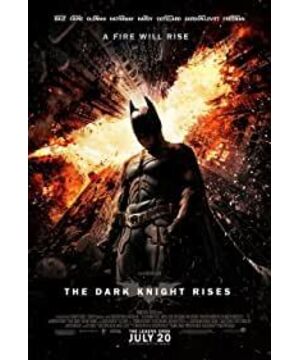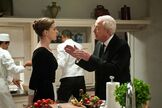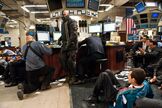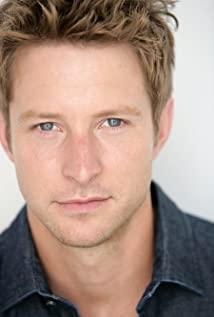A few days ago, I saw Li Xiaofei talking about the similarities between Chinese martial arts culture and American superhero culture ( "Guardians of the Galaxy": How Americans make martial arts movies ). He proposed what martial arts and superheroes reflect. In fact, it is the fascination and yearning for "Superman" in people's hearts. I deeply agree with this view. Although the two of them are dressed in oriental traditional culture and the other is wrapped in science fiction elements, although the superficial differences are huge, the spiritual core is quite unified. The third episode of Christopher Nolan's Batman series "The Dark Knight Rises" provides a very interesting example. This film, which is undoubtedly a superhero on the surface, can actually have a martial arts-oriented interpretation. Distorted from this perspective, "The Dark Knight Rises" is completely an American martial arts film. Before watching "The Dark Knight Rises", the success of the second episode of this series, "The Dark Knight", greatly strengthened my impression that this series is a "crime type" film. But after watching the third episode, I recalled Nolan's entire Batman series completely, and found that "The Dark Knight" was actually an extremely gorgeous digression, and "The Dark Knight Rises" finally brought the series back to the topic and ended.
This topic is not "crime" at all, but "wuxia". Because the whole story is actually about the grievances of the teachers of the "Shadow Warrior Alliance"——
The first "Batman Is Born": Apprentice and Killer
This story begins with the most important foundation step in almost all martial arts themes: apprenticeship to learn art.
In the first part of the series, Master Wayne ran away, claiming to be trying to understand the psychology of sin. But this goal was later discarded lightly by his master ninja master Ra's Al Ghul with the phrase "sin is not complicated," and instead helped Wayne overcome his inner fear. As a result, the ultimate reward of leaving this trip was not to understand the evil psychology, but to become a teacher and learn kung fu, so that Master Wayne has the ability to fight crime with his bare hands.
This is the most important basis for the existence of Batman-"Lao Tzu has practiced" (the other basis is "Lao Tzu is rich"). This is why Master Wayne keeps saying "Everyone can be a Batman", but other fake Batman only get beaten (no money and no practice).
And this is actually the basic logic of all martial arts movies: to be a chivalrous man, you have to fight badly.
After "apprentice to learn art", another martial arts movie audience is so familiar with the plot: "killing the teacher". Just as Linghu Chong finally discovered that his mentor Yue Buqun was the villain, Master Wayne suddenly discovered that his beloved master was actually the boss.
It's just that Wayne didn't entangle like Linghu Chong, he simply killed his master.
The second part of "The Dark Knight": Appearance
On the surface, after Batman killed his teacher, he was officially appointed. But it doesn't. Because Master Wayne actually inherited some important concepts of Master Ninja, such as "Evil is not complicated." Master Wayne naively thought that crime is really not difficult to understand, and that criminals are nothing more than means to achieve a certain end. By seizing the purpose, the criminal can be convicted. In the first episode, Batman did this to the gangster criminals of the paid Connie Gang.
As a result, the unexpectedly born Joker kicked Batman back to the state it was at the beginning of the series. Because it wasn't until the Joker came on stage that Master Wayne suddenly realized that his knowledge of crime was not much better than before he left, and some crimes were still completely beyond his comprehension. In front of the "evil" of the clown, Master Ninja's view of evil instantly collapsed. The master ninja was whiplashed by the clown.
In the dimension of evil, the ninja master and the clown are at opposite ends, and there is almost no intersection.
The ninja master said that sin is not complicated, because he feels that sin is nothing but a process that he has to go through for his great goal-just as he did later. The great goal of restoring civilization to balance is the most important. The so-called evil is only some means in the process of achieving this goal. So as long as you understand the goal of the crime, the crime is not difficult to understand.
The clown is at the other extreme. What is the goal of the clown? Crime seems to be just a game for the clown. To speak of goals, it is nothing more than to show how easy it is to arouse evil in the heart-and isn't it one of the most important characteristics of evil that one easily falls into evil? So the goal of the clown is nothing but sin. This is a pure evil after stripping away the "target". Although in the eyes of the clown, this is just a game. But in my opinion, this represents another extreme aspect of sin, which is the sin of "no desire is strong" and the "Zen" of sin.
The crime of the ninja master is instrumental and serves another purpose. It is the "evil of entering the world", which can be said to be the Confucian or activist among the criminals. The crime of the clown is a purer art, and it is the "evil of the world." The clown is a Taoist or artist among criminals.
So the ninja master emphasizes the meaning of the goal, and the clown is good at showing off the art of crime.
Batman’s understanding of evil was originally limited to the former, and it was the Joker that allowed him to see another aspect of evil.
After the battle of the Joker, Batman truly completed his surpassing of the teacher's insight and understanding of evil. From this perspective, the Joker is actually Batman's second master.
The third part "The Dark Knight Rises": Remnants of the Division
So I think only after the dual training of Master Ninja and Joker, Batman can be regarded as a true self-reliance and a master. Next, according to my original guess, in the last episode of the series, the more mature Batman must face an unprecedentedly powerful crime. And this kind of power should not only be manifested in concrete power, but also in the realm of evil.
This last opponent should be a master of evil. He should combine the evil of the ninja master and the evil of the clown. He should resolutely implement the artist-like criminal skills to a fanatical goal that changes the world, with Taoism. The ethereal means of Confucianism are used to govern the world.
How I look forward to the third episode of Baine is such a master of evil.
It's a pity that I guessed completely wrong. My guess is based on the theme of "crime", so the state of evil faced by Batman in the third episode will be the result of the first two. Unexpectedly, Nolan thought otherwise. In this third episode, Nolan did not upgrade the realm of evil (although it was upgraded in scale), but actually upgraded the "martial arts".
Alas, in Nolan's mind, this series is still a martial arts movie after all.
Next, let's talk about the martial arts side first, and then talk about the crime side.
1. Martial arts aspect: Taizu Changquan and Yazhong Cheats
In terms of identity, Bain’s identity is another familiar setting in the hearts of those of us who have watched too many martial arts stories-the remnants of the teacher. The contradiction of the third part is not upgraded on the basis of the first and second parts. Instead, it seems to completely skip the second part and continue directly to the first part: the remnants of being driven out of the division were killed instead. Come back to avenge the teacher.
And it is very important that, like many martial arts novels, the remnants of the master can always learn some magic skills, which results in the skill is always much better than other serious brothers.
The first confrontation between Batman and the Bain brothers is the best scene in the whole movie. In Nolan’s intentional arrangement, the action scenes in the trilogy are more "simple". The action scenes in "Batman Is Born" are actually quite surreal, and this color is in the "Dark Knight" It's a lot lighter. In "The Dark Knight Rises", the action scenes are simply clumsy, so probably many viewers will not like the action scenes of "The Dark Knight Rises".
However, "clumsy" and "intentional clumsiness" are fundamentally different.
The clumsiness is Taizu Changquan, and the deliberate clumsiness is Xiao Feng's Taizu Changquan.
In this battle, Bain was basically the masterful style of Xiao Feng in Juxianzhuang who used his peerless skill to beat Taizu Changquan. All the fancy decorations were removed from the martial arts, and all that was left was the destructive power of fists and fists. The most powerful force comes from the simplest and most direct killer moves-Nolan has quite a good understanding of martial arts.
Regardless of whether Bain is a master of crime or not, at least in martial arts, Bain is indeed a master.
After Batman was brutally severed by Bain, Nolan, who was possessed by Tsui Hark, turned the plot to another martial arts section that we are familiar with: practice and upgrade under the cliff!
If Bain had read martial arts novels when he was young, he would not have made such a big mistake and threw Batman under a cliff. Chinese audiences all know that the protagonist who is thrown under the cliff must not only not die, but also must be able to find martial arts secrets at the bottom of the cliff to practice martial arts and climb up to revenge.
Although Master Wayne’s experience at the bottom of the cliff was not as straightforward as when he picked up the martial arts secrets, it was still quite terrible: not only were there genius doctors to help heal the wounds, but there were also hidden masters who gave instructions for enlightenment. Divine power, full of blood to get out of the gate.
Therefore, the main story of "The Dark Knight Rises" is completely a standard martial arts film mode from encountering a strong enemy and losing to a challenge to the strong enemy again after training and upgrading, which almost completely deviates from my personal expectations for it.
2. Crime aspect: land reform and neutron bomb
Looking back at the crime aspect.
Baine's evil of joining the world, that is, his criminal purpose is directly related to the ninja master. He basically had two goals: to avenge his master, and to inherit his master’s will to destroy Gotham City (at least these two on the surface).
Then we have to take a look at the reason why Master Ninja wanted to destroy Gotham City. In the eyes of the ninja master in the first episode, the corruption and criminals in Gotham City at that time were rampant. To use the line in the film, it was "the city is rotting". In the face of dying patients, only shock therapy was used. Since Gotham City is so corrupt that it is hopelessly corrupt, the radical behavior of Master Ninja has his logical rationality. The goal of Master Ninja, at least from his own logic, is tenable. When it came to Bain, Gotham City had been at peace for eight years, and it was a pretty good place. At this time, to destroy such a city, there is no longer the logical rationality of the original ninja master.
So Nolan had to find a logical basis for Bain's criminal target. What Nolan found was the "gap between rich and poor." As a result, "The Dark Knight Rises" became a story of Bain's agrarian reforms launched by the poor and lower middle peasants in the wicked capitalist Gotham City.
In my impression, Nolan also revealed in an interview before the movie that he wanted to fight against the rich and the mob in the revolution, as if to fight the gap between the rich and the poor and the subsequent Do a deep discussion about the coming revolution. But the final effect shown in the film is that he tickles both of them:
On the one hand, the rich class in the film is far from being ruthless enough to provoke revolution. They are really holding a charity party anyway. Therefore, Bain’s psychological foundation for launching the revolution is extremely weak.
On the other hand, for the poor class in the film—the later mob, Nolan did not describe their transition from citizen to mob in any detail. They were transformed into mobs instantly under the incomparably inferior instigation of Bain.
In the first two parts, Gotham City "isn't beyond saving" despite various difficulties. It is not difficult to show that it is worthy of being saved. It only needs to spend a small amount of pen and ink to show one or two examples of ordinary citizens' humanity. The shining point in the first episode is actually the little boy in the slum. A few simple eyes make the audience believe that there is something pure and beautiful in this city that is worth saving. The highlight in the second episode is the brilliance of humanity displayed by the citizens on the two ferries.
In the third part, all the people in Gotham were reduced to a blurred background, and there were no similar flashes. Instead, all the people who dared to resist Bain in the film were all civil servants (including the police), and there was no ordinary citizen. . The only person who has a similar shining character is the orphanage boy with a chalk drawing of the Batman logo, but he can’t see anything in his body that is as innocent and shining as the little boy in the first part. He is purely a fan of Batman. That's it.
Therefore, although Bain did not have the basis for launching the revolution before the revolution, the progress of the revolution affirmed Bain’s actions. This contradictory setting made Batman’s rescue behavior lose its logical basis. In "The Dark Knight Rises", Gotham City has become a city that is not worth saving. If the people in a civilization are so easily transformed into a mob as a whole, then I would choose to be Ye Wenjie in "Three-Body" to destroy the civilization instead of trying to save it like Batman.
In short, the film is quite confusing in many settings of the goal of the crime-the revolution.
Let's look at Bain's evil of birth, which is his art of crime.
Let me talk about personal charm first. Compared with the clown's eloquence and a series of classic lines, Bain's eloquence is nothing short of a disaster. In the first half of the film, when he didn't talk so much, from the domineering hijacking to the easy KO Batman, Bain's aura was still very strong. But this anger basically only lasted until the moment he issued the revolutionary declaration. This illogical, connotative, and expressive speech basically ruined Bain's charm. In the first half of the film, those desperadoes who follow Bain are portrayed as fanatic believers, who can go to death at any time by following Bain's order. But after that speech, it is difficult for us to believe that a leader with only this level of incitement can actually make so many people follow so desperately, because we know that this level of superstition can never be sustained by strong force alone. of.
Let's talk about criminal skills. In the last episode, the crime of the clown was basically a low-input, high-output, small money to do big things, and only some of the cheapest weapons could almost destroy a city, relying entirely on the brain, and relying entirely on the technical content. But Bain played the most unskilled trick—the threat of a weapon of mass destruction with the neutron bomb. This is the most common trick that has been played so many times in so many movies. The technical content of weapons has gone up, but the criminal skills themselves are lacklustre.
So in my eyes, Bain is just a martial artist, far from the standards of a crime master.
On the subject developed in the second part of "crime," the performance of the third part can be said to be lacklustre. So I had to treat it as a martial arts theme, at least in the aspect of martial arts, this series will eventually have a relatively complete structure.
But none of the above is actually the most important reason why I don't like this film. What disappointed me the most about this film was that Nolan’s efforts to "tell comic hero stories in a realistic context" started at the beginning of the series, and it fell short in this third film. Details in another article.
Text: Wei Zhichao
A little bit of stuff, my new book published in 2020:
View more about The Dark Knight Rises reviews










